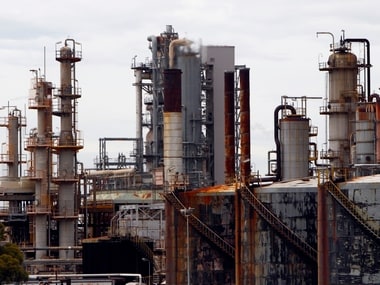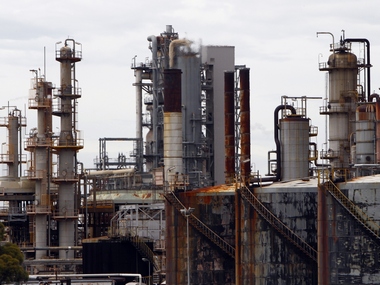Opec nations reached a preliminary agreement Wednesday to curb oil production for the first time since the global financial crisis eight years ago, in an effort to reduce a global glut of crude that has depressed oil prices for more than two years and weakened the economies of oil-producing nations. The deal was reached after several hours of talks in the Algerian capital, though output levels must still be finalised at an OPEC meeting in Vienna in November. How much is the output cut agreed up on? The preliminary deal will limit output from the Opec to between 32.5 million and 33 million barrels per day, said Mohammed Bin Saleh Al-Sada, Qatar’s energy minister and current president of OPEC. Current output is estimated at 33.2 million barrels per day. What has been the impact on the markets? Benchmark US crude jumped $2.38, or 5.3 percent, to close at $47.05 a barrel in New York. Brent crude, the international standard, was up $2.72, or 5.9 percent, to $48.69 a barrel in London. Energy companies led a rally in Asian stock markets as investors welcomed the news. In India, public sector energy major ONGC rose 1 percent and private sector Reliance Industries up 1.4 percent. What are the analysts saying? [caption id=“attachment_3026112” align=“alignleft” width=“380”]  Reuters[/caption] A section of analysts feel the deal could still fall apart. “You might say they have kicked the can down the road with an intent to conclude something by November,” said Bhushan Bahree, an analyst with IHS Energy told Associated Press. “Whether they succeed or not remains to be seen.” Larry Goldstein of the Energy Policy Research Foundation says the only thing is that “they have agreed to agree”. He points out that “it’s still talk,” with few details or numbers. Goldstein said the Opec announcement could halt further slippage in short-term prices, buying time for Saudi Arabia and other cartel members. He expects oil inventories to start coming down sharply — with prices rising — next summer. “The key to the consumer is — if you have a long view — prices are going to go up fairly dramatically by the second half of 2017,” Goldstein said. He said that once inventories are worked off, there won’t be enough of a cushion of additional, quick production to prevent that run-up. Vandana Hari, energy industry analyst and former editorial director with S&P Global Platts, too echoes these views in a blog on LinkedIn (read here). “The >$2/barrel jump in crude benchmarks overnight seems like an over-reaction; expect the rally to fizzle out as the market digests how far removed it is from an actual agreement to curb production, farther from implementation, and a long, long distance away from any supply being withdrawn from the market,” she says. She also notes that Russia needs to be closely watched. “Russia was missing from the action at Algiers. Not a deal-breaker at this point, but recent comments by its energy minister suggest Moscow may be starting to cool off on the proposal.” S&P Global Platts estimates if OPEC cuts production by 700,000 barrels a day, prices would rise by $12 in 2017, according to analyst Nicole Leonard. She said US producers could not fill the void as quickly as next year, partly because some have too much debt and not enough cash to finance new drilling. Platts estimates it will take five years for US operators to increase their production by 1 million barrels a day, or slightly more than OPEC’s target for cutting production. Mike Wittner, head of oil-market research at Societe Generale SA in New York feels the cut is clearly bullish. “What’s much more important is that the Saudis appear to be returning to a period of market management,” Wittner has been quoted as saying in a Bloomberg report. The report also says the deal marks a new era in the relationship between Saudi Arabia and Iran, two countries that have been sparring. What are the options for India? As much as 80 percent of India’s energy requirements are met through imports. So a spike in oil prices can have major implications for the country’s current account deficit and economy in general. “So, as far as the impact on major growing consumers and import-dependent countries like India is concerned, I think it’s more of the same as far as prices as concerned, for now,” says analyst Hari. So the way ahead is by quickening the reforms in the energy sector. “India can make the most of this continuing low price environment through phasing out the remaining subsidies, bringing in fuel pricing reforms, and targeted subsidy measures. It can also take advantage by accelerating its strategic oil storage programme,” she says. “The oil suppliers will continue courting buyers. And perhaps there are avenues for win-win partnership in midstream, storage and infrastructure development,” she says. With Associated Press
India can make the most of the continuing low prices through by phasing out the remaining subsidies by bringing in more reforms and also by accelerating its strategic oil storage programme
Advertisement
End of Article


)

)
)
)
)
)
)
)
)



